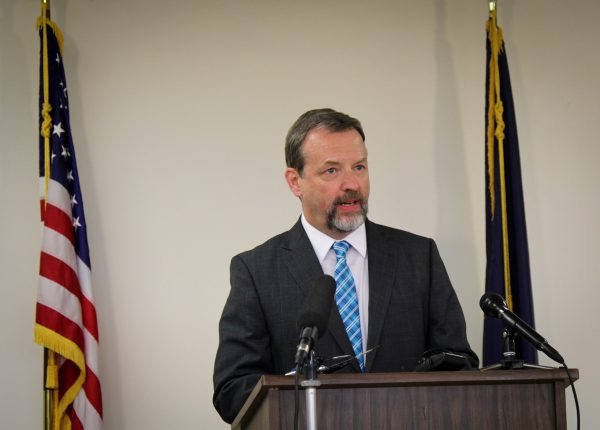
Alaska’s only state-run psychiatric hospital is an unsafe place to work. That’s the finding of a report by an independent investigation commissioned by the State of Alaska.
At a press conference in Anchorage on Wednesday, Attorney General Jahna Lindemuth said in March the state launched a probe “to look at concerns of workplace safety and claims of retaliation at Alaska Psychiatric Institute.”
The state hired a private law firm to investigate three main issues: Whether API employees are safe at work, whether there is retaliation by management against employees and if the facility is a hostile work environment.
Attorney Bill Evans wrote the report after conducting confidential interviews with current and former staff, as well as reviewing past surveys and investigations of API. As recently as November of 2017, officials with the Alaska Department of Labor and Workforce Development, Occupational Safety and Health found a number of safety violations at the facility. Evans’s conclusion is that several factors make it dangerous to work at API.
“I focused my report primarily on finding those underlying reasons that maybe affecting safety in the workplace, things that could be controlled, perhaps, by the administration,” Evans said giving a summary of the document.
The report cites nearly a dozen factors hindering employee safety. They include problems with scheduling, inadequate training for entry-level employees, insufficient programming for patients, no intensive care unit and a lack of consequences for patients who physically assault staff.
Evans also investigated claims of retaliation against employees who raise safety concerns and that API is a hostile work environment. He did not find sufficient evidence that either charge is happening in a systematic way, though conceded there are individual incidents that might have contributed to that perception among staff.
By some estimates, API has roughly half the number of beds that the state needs. Department of Health and Social Services Commissioner Valerie Davidson explained during remarks that more than a decade ago when the current API facility was built, the broad intent was to replace institutional care with community-based resources. But that hasn’t happened.
“Anytime you have a demonstrated need of 160 beds and you instead end up with a facility that has 80, it’s just a matter of time before those problems are going to come to the forefront,” Davidson said.
Davidson’s department and the Walker Administration are taking a number of immediate steps to improve the situation. This month they are raising wages for nurses at API to make the jobs more competitive with nearby hospitals. They’re also partnering with another state entity, the Alaska Mental Health Trust Authority, to study potential strategies for bringing more treatment beds online. If the Walker Administration remains in place after the November election, Davidson said it will make new legislative funding requests for facility improvements, more staff positions and more treatment spots.
Zachariah Hughes reports on city & state politics, arts & culture, drugs, and military affairs in Anchorage and South Central Alaska.
@ZachHughesAK About Zachariah




